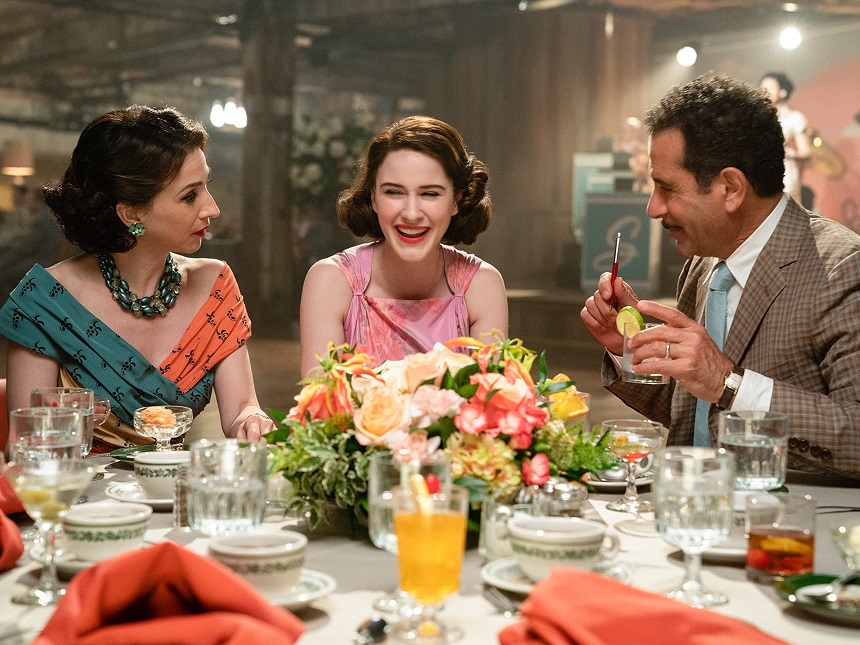Thanks to The Marvelous Mrs. Maisel, I now have the best, most encapsulating way to describe my family: exactly like the show, except 90 percent less funny. At a time where representation is finally gaining traction in Hollywood, The Marvelous Mrs. Maisel is, for me, TV validation at its finest.
It’s one thing to love a show, but it’s quite another to find validation in it. Seeing aspects of yourself and your experiences on screen is not only powerful, it can provide insight and offer solace in profound ways. I love the show simply because it is brilliant, but it holds a special place in my heart because I connect to it on a personal level.
You don’t need to watch more than five minutes of Amy Sherman-Palladino’s latest masterpiece to grasp that the show’s titular family is Jewish. Consistently throughout each season, the essence of being a Jewish New Yorker is a narrative backbone of the family, providing texture and planting much of the roots of their humour. At many moments in The Marvelous Mrs. Maisel, I am laughing along with Midge while really lamenting how interchangeable her family problems are with mine.
My own family frighteningly resembles the Maisel-Weissman bunch. The show kicks off in 1958 with Midge’s son Ethan at 3 years old, making him exactly the same age as my father, who grew up mere blocks away from the Maisel’s fictional address on Riverside Drive. Watching Imogene and Midge on their strolls in Riverside Park, I flash back to when my sister and I were little and my dad would take us there during visits to our grandma’s (she lived in that apartment for 60 years). I remember going to Jewish delis like the one where Midge buys her Yom Kippur dinner. I will never forget the black-and-white cookies and bagels with fresh lox.
Those are good memories and I love that they’re a part of me. But I also feel, in a very real way, all of the neurotic, noisy, chaotic, judgmental, disapproving energy spewing out of her family. There’s the incessant complaining, the holding onto grudges that don’t matter anymore, the ceaseless stubbornness that gets passed down from generation to generation, and, of course, the unforgiving ridicule of one another.
Read the article by Brielle Diskin in PopSugar.

